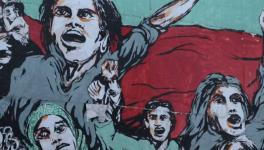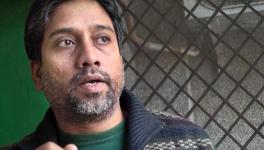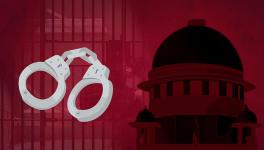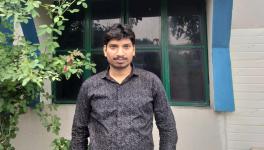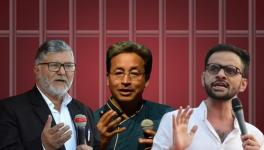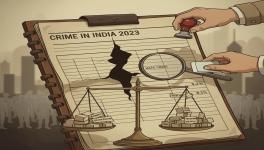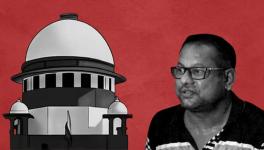Mere Statement Against Govt or Military Not Sedition: Kerala HC
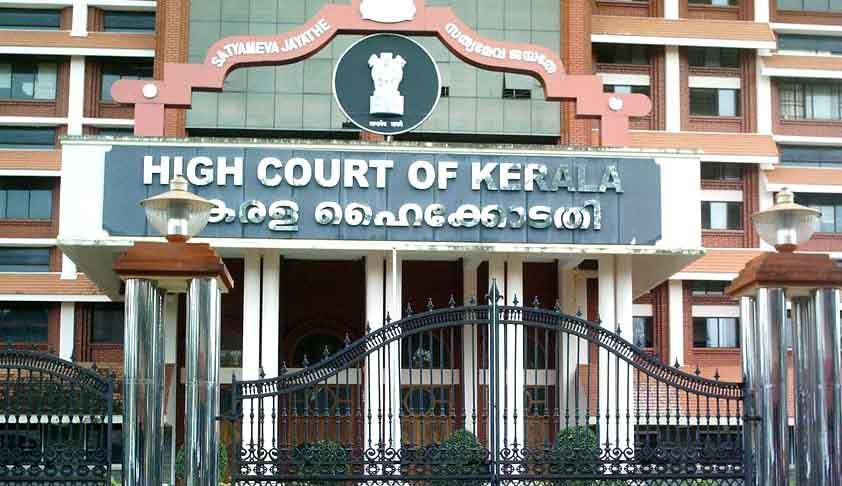
Image Courtesy: Live Law
The High Court of Kerala has acquitted all five persons who were convicted by a Special Court of National Investigation Agency (NIA) in 2016 for allegedly organising a meeting of the banned outfit, Students Islamic Movement of India (SIMI) in 2006.
The court observed the NIA Special Court committed "serious error" in convicting the accused. They were convicted by NIA Court for offences under Section 124A (sedition) of the Indian Penal Code and Sections 10(a)(i),10(a)(ii) and 13(1)(b) of the Unlawful Activities (Prevention) Act (membership of unlawful organisation and taking part in unlawful activities).
The prosecution case was that on Independence Day (August 15) in 2006, the accused persons had organised a meeting at Happy Auditorium at Panayikulam near Aluva on the subject "Role of Muslims In Indian Independence", which was attended by 17 persons. In the meeting, the second accused, Abdul Rasik, allegedly said "Indian Army is killing Muslims in Kashmir who are doing jihad against Indian Army in Kashmir. Other Muslims in India are being tortured under laws like TADA, NSA, etc against which under the leadership of SIMI we have to fight".
After that speech, the third accused, Ansar Nadvi, allegedly said that "Whatever we see in India is made by Britishers. We should move back to the period when Nizams and Mughals were ruling old India and for that you have to fight with SIMI and no one can destroy SIMI".
The case, which was initially investigated by local police, was taken over by NIA in 2008. The NIA filed a chargesheet in 2011 against 16 persons who had attended the meeting. The NIA court had sentenced Rasik and Ansar to 14-year rigorous imprisonment, while three other accused -- P A Shaduli, Nizamuddin and Shammas-- were sentenced to 12 years of jail and 11 others were acquitted. One of the accused was a juvenile and the chargesheet against him was separately filed in the Juvenile Justice Board, which was also quashed by the HC while allowing convicts' appeal.
No Evidence of Making the Speeches
The NIA had also filed appeals against the acquittal of 11. The High Court jointly considered the appeals filed by the convicts and the NIA. The Division Bench of Justices A M Shaffique and Ashok Menon held that there was no evidence that the speeches were made as alleged. The prosecution's main witness was PW1, who was the imam of Panayikulam Salafi Masjid from 2006 to 2010. PW1, who had allegedly participated in the meeting on invitation from fourth accused Nizamuddin, was initially made accused in the crime. Later, he was made approver by the NIA and his statement was recorded under Section 164 CrPC four years later. The case was largely built on his evidence.
Referring to Section 30 and illustration (b) of Section 114 of the Indian Evidence Act, the Court said that statement of the approver, which was recorded long time after the occurrence, cannot be treated as a substantive evidence without corroboration. The corroboration sought to be achieved through the evidence of another witness, PW15, failed as he had not directly heard the impugned speeches.
The other corroborative evidence projected was the testimony of PW31, the SI of police. However, his testimony did not inspire confidence, as he had mixed up the speeches attributed to Rasik and Ansar. Moreover, the Court said that he was likely to support the prosecution case being the SI. Another witness, PW32, also a police officer, did not speak anything of the contents of the speech. "In the absence of any such corroboration, we are of the view that the prosecution had miserably failed to prove the contents of the impugned speeches", said the judgment authored by Justice Shaffique.
The Court said that even if the speeches are assumed to have been made, they will not constitute the offence of sedition. Referring to the Supreme Court decision in Kedar Nath Singh vs. State of Bihar, which read down Section 124A IPC, the Court said: "On a bare reading of Section 124A, it is rather clear that merely making a statement against Government of India or military will not become sedition".
The Court observed that the alleged speeches may be "malicious", but held that there was nothing seditious in its contents. "...none of the speakers said that they should show disloyalty to the government of India. They were projecting the plight of Muslims, of course viewed in a narrow angle as saviours of Muslims community. They might be wrong in making such a statement. It is their thought process that the rule of Mughal or Nizam is better and they should fight under the leadership of SIMI. Therefore, we are of the view that none of the accused can be charged with the offence under Section 124A", observed the bench.
Though only two persons- Rasik and Ansar- were alleged to have spoken at the event, three others who were present at the stage were also convicted under conspiracy to commit sedition (Section 120B read with Section 124A IPC). The Division Bench held that no materials were produced by the prosecution to prove conspiracy.
SIMI Banned Under UAPA Only in 2013
The Court noted that SIMI was included in the schedule of unlawful organisations under UAPA only from February 1, 2013, much later than the alleged offence. "If any person is holding any publication, pamphlets or leaflets, which are published or printed prior to the effective day, such persons cannot be treated as person continuing to be members of SIMI", ruled the Court.
In this connection, the Court took into account the delay in registration of FIR and in sending the seizure mahazar to the Court. The FIR was registered at 8.30 PM, though the accused were brought to the station at 2 PM on 15.08.2006. The FIR was sent to Court only on 16.08.2006 at 8.30 PM. The police claimed that publications of SIMI were seized from the accused. However, the seizure mahazar was sent to court three days later, i.e on 18.08.2006.
"Defence has a case that most of documents had been produced subsequently and it was later planted on the accused and made it appear that it was the accused who brought it. In fact, there is no explanation for the prosecution regarding the delay in sending the seizure mahazar to Court which is also one of the reasons for not placing reliance on these documents", said the bench.
The Court also made reference to the SC decision in Arup Bhuyan vs State of Assam which held that mere membership of a banned organisation will not make a person criminal unless he resorts to violence or incitement of violence. "Other than the fact that they(accused) have made a speech, even according to the prosecution, that they should fight through the organisation SIMI, there is nothing to imply that they continue to be members of the said organisation. The only evidence we have is that of PW1, which is not corroborated by any other materials or evidence. When the accused had denied involvement in any such organisation, it is for the prosecution to prove that they were propagating SIMI ideology. We could arrive at a conclusion that speakers A2 and A3 were following SIMI ideologies only if we believe the version of PW1. But as already stated, he is treated as an accomplice by the prosecution. He was originally a witness, later he is made an accused and thereafter an accomplice. His evidence is not corroborated by any other evidence", concluded the bench.
Get the latest reports & analysis with people's perspective on Protests, movements & deep analytical videos, discussions of the current affairs in your Telegram app. Subscribe to NewsClick's Telegram channel & get Real-Time updates on stories, as they get published on our website.











